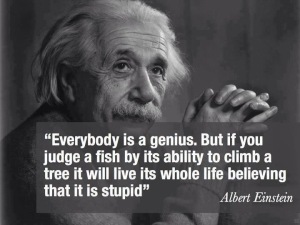I clearly remember one of the more frustrating days when I was so angry with her that in my thoughts I wanted to accuse her of not being able to learn. That’s when it hit me…she CAN learn. She learned English in 6 months. She learned the routine of our family. She learned that we are safe. She eventually learned the appropriate response for when someone gets hurt and is now the first one to offer compassion and ask if they are okay. She learned to put her pajamas away in the mornings and dirty clothes in the hamper at night. She learned how to ride a scooter…even with weak legs! She learned to prepare for tomorrow by laying out her clothes the night before so that she could be ready for whatever the next day held when she woke up. Once I opened my eyes, the list began to grow.
And then the next light bulb went on. When something was given enough time and repetition (moving from short-term to long-term memory), she was able to learn. Funny how it works that I had been learning the same thing about Little E in regards to some of her behaviors and skills she needed to learn with autism. Given enough practice and time, she could learn. Deeper thought also revealed that just like an autistic child who cannot pick up on social cues to recognize when someone is mad at them, bored with their conversation or to simply know socially acceptable behavior in a given situation, so it goes for my DOP.
I began to wonder if some of the same things I was learning about autism could be applied to FASD. I dove deeper into research on FASD and unearthed a mountain of other characteristics of my DOP that resonated within me. I picked the brain of the professionals in our life that help us with Little E and asked them if I was crazy to think that things that help Little E grow in success could do the same for DOP. Time and again, they validated that I was not crazy, but instead on the right path.
Every one of those confirmations made me realize that it wasn’t impossible or even scary to raise this neurologically impaired child and you know what else? I realized that DOP needed me just as much as Little E. I just didn’t understand her, nor know how to help her until then.
As I began to shift the way I thought about my DOP, look for teachable moments and parent her differently within the structure of a routine, a black and white set of rules, tons of encouragement and patience, different, more realistic expectations and a willingness to practice, practice, practice until she reached success, I also began to understand her in a way that I could enjoy her presence and see the good in her. When I began to give her grace instead of sarcasm and reprimand, she began to bloom and her confidence soared. Not every day is perfect, but if she and I, together, can aim to have more successful days than hard days and we can celebrate even the smallest thing learned then I believe we can conquer just about anything.
———-
***I had intended to only write 2 parts, but since this Part 2 became so lengthy, I decided to put the last part of this into a Part 3. The good news is that it’s already written and full of FASD resources and detailed examples of how we see this played out in DOP’s life.






